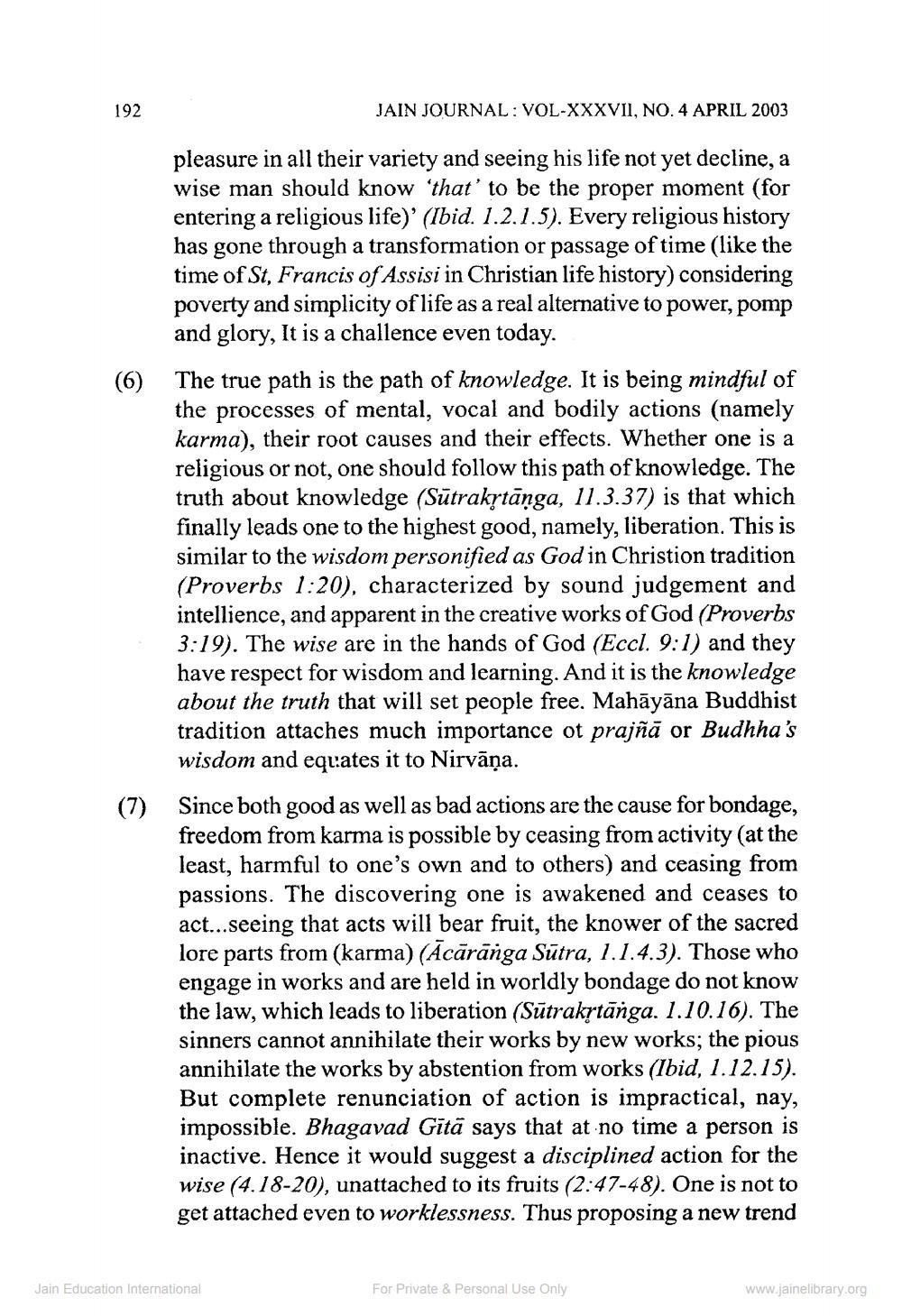________________
192
JAIN JOURNAL: VOL-XXXVII, NO. 4 APRIL 2003
pleasure in all their variety and seeing his life not yet decline, a wise man should know that' to be the proper moment (for entering a religious life)' (Ibid. 1.2.1.5). Every religious history has gone through a transformation or passage of time (like the time of St, Francis of Assisi in Christian life history) considering poverty and simplicity of life as a real alternative to power, pomp and glory, It is a challence even today. The true path is the path of knowledge. It is being mindful of the processes of mental, vocal and bodily actions (namely karma), their root causes and their effects. Whether one is a religious or not, one should follow this path of knowledge. The truth about knowledge (Sūtrakytānga, 11.3.37) is that which finally leads one to the highest good, namely, liberation. This is similar to the wisdom personified as God in Christion tradition (Proverbs 1:20), characterized by sound judgement and intellience, and apparent in the creative works of God (Proverbs 3:19). The wise are in the hands of God (Eccl. 9:1) and they have respect for wisdom and learning. And it is the knowledge about the truth that will set people free. Mahāyāna Buddhist tradition attaches much importance ot prajñā or Budhha's wisdom and equates it to Nirvāna.
Since both good as well as bad actions are the cause for bondage, freedom from karma is possible by ceasing from activity (at the least, harmful to one's own and to others) and ceasing from passions. The discovering one is awakened and ceases to act...seeing that acts will bear fruit, the knower of the sacred lore parts from (karma) (Ācārānga Sūtra, 1.1.4.3). Those who engage in works and are held in worldly bondage do not know the law, which leads to liberation (Sūtrakrtānga. 1.10.16). The sinners cannot annihilate their works by new works; the pious annihilate the works by abstention from works (Ibid, 1.12.15). But complete renunciation of action is impractical, nay, impossible. Bhagavad Gitā says that at no time a person is inactive. Hence it would suggest a disciplined action for the wise (4.18-20), unattached to its fruits (2:47-48). One is not to get attached even to worklessness. Thus proposing a new trend
Jain Education International
For Private & Personal Use Only
www.jainelibrary.org




